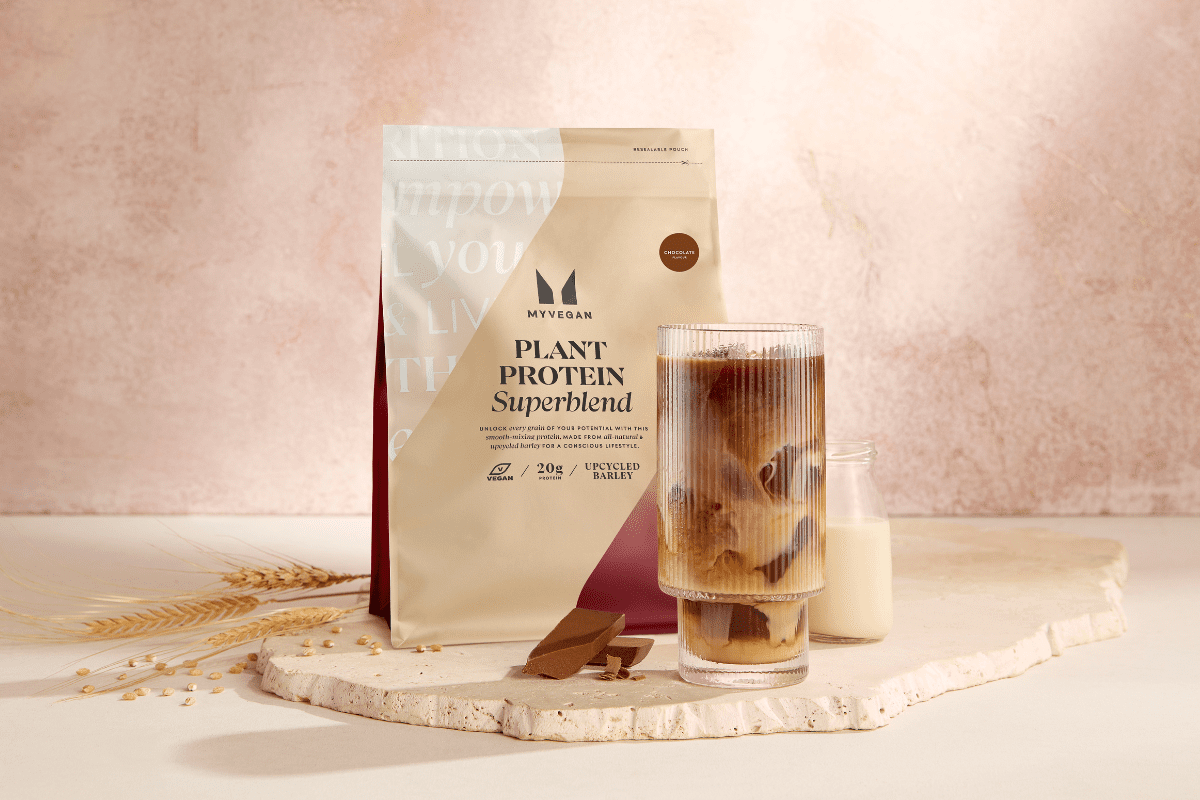
Happy Gut, Happy Mind | Gut-Brain Axis Explained
Written by Beth Addey, Registered Associate Nutritionist In recent years, we’ve become more and more aware of how important our gut health is to our overall wellbeing. From how often we get sick, to how we feel every day, our gut has a huge influence. Read on to learn how your brain and gut interact […]

High-Protein Mixed Berry Smoothie Bowl
If you’re looking for a quick, fruity breakfast packed with vitamins and minerals, you need a smoothie bowl. A smoothie bowl is exactly what it sounds like – a smoothie, but in a bowl instead of a glass. It means you can add delicious wholefood toppings like chopped fruit, nuts, seeds, or cacao nibs for […]

Plant Protein Superblend: The Power of Upcycling
Last Updated: 28/05/2024 A game-changing new vegan protein powder is here. Introducing: Plant Protein Superblend. It’s super smooth, tastes amazing, and best of all it’s made with upcycled barley and rice protein. Read on to learn more about what makes Plant Protein Superblend so innovative, and how to use it in your everyday drinks. What […]

Nutritionist Explains: What Causes A Weak Immune System?
Why is immunity important? What weakens the immune system? 1. Not eating enough 2. Dehydration 3. Stress 4. Lack of sleep 5. Being less active Signs you need an immunity boost Why is immunity important? We all want a strong immune system to avoid getting the flu or common cold. A strong immune system can […]